Early Psychosis Programs - Our Clinical Team
 Nupoor Adhikari, M.S.
Nupoor Adhikari, M.S.
Nupoor Adhikari is a supported education and employment specialist at SacEDAPT, passionately dedicated to assisting clients in achieving their academic and occupational goals. She collaborates closely with clients, ensuring appropriate accommodations in school and work settings. Adhikari's prior roles as a mental health worker at UC Davis Health Emergency Department and a research intern at the UC Davis MIND Institute have shaped her commitment to mental health advocacy. She is thrilled to be part of SacEDAPT and EDAPT, contributing to transformative work at the intersection of education, employment, and mental health.
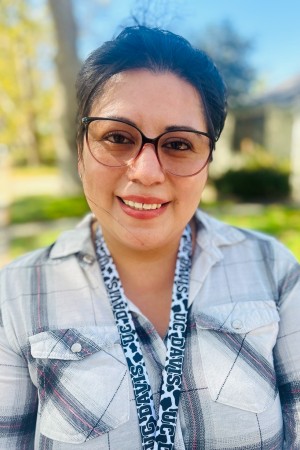 Brenda Avalos, B.A.
Brenda Avalos, B.A.
Brenda Avalos is a bilingual SacEDAPT supported education and employment specialist. Avalos works closely with clients, helping them improve their everyday functioning and achieve their goals of social, academic and occupational recovery. Avalos works to ensure each client is receiving the appropriate accommodations in the school and work setting, acting as a liaison between the client's school and their families. She received her B.A. in sociology from CSU Stanislaus. Avalos is a part of two different projects, Multi County Collaborative (MCC) and is a team lead for the Early Psychosis Intervention Training and Technical Assistance Center (EPI-CAL TTA) team.
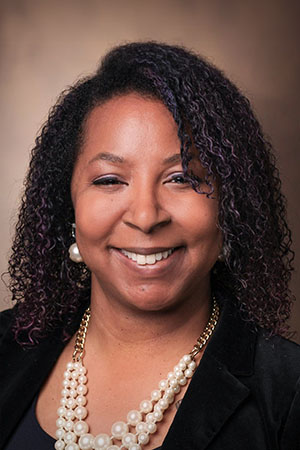 Khalima A. Bolden-Thompson, Ph.D.
Khalima A. Bolden-Thompson, Ph.D.
Khalima A. Bolden-Thompson is a licensed clinical psychologist and associate professor of health sciences in the Department of Psychiatry and Behavioral Sciences. Bolden-Thompson received her Ph.D. in clinical psychology from the San Diego State University/University of California San Diego Joint Doctoral Program in Clinical Psychology after completing her internship at UCLA with a focus on early psychosis and trauma. She went on to complete a postdoctoral fellowship in clinical psychology at Vanderbilt University Medical Center with a focus on early psychosis and neuropsychological assessment. Throughout her training and career, she has developed expertise in the diagnosis and treatment of trauma with an emphasis on treating comorbid trauma and serious mental illness. Since arriving at UC Davis, Bolden-Thompson has actively served on the Department of Psychiatry's Diversity Advisory Committee and is involved in recruitment activities focused on increasing diversity and inclusion in both the department and in the health system. Bolden-Thompson has also demonstrated her commitment to excellence in teaching and education and has lectured courses on social determinants of health in both the medical and nursing schools. Bolden-Thompson also has active and rich research that focuses on examining sociocultural factors associated with risk for psychosis and access to care. Bolden-Thompson has specific expertise in the impact of systemic marginalization of African Americans both in society and in the healthcare system on the mischaracterization of psychosis symptoms in this population as well as the role of intergenerational and contemporary trauma on this population as a key stressor contributing to psychosis symptoms in this group. Bolden-Thompson currently co-leads the Diversity, Equity, Inclusion, and Accessibility Team in Tara Niendam's Early Psychosis Training and Technical Assistance grant with the state of California. She has published in various scientific journals focusing on these interests and is the member of a number of scientific societies.
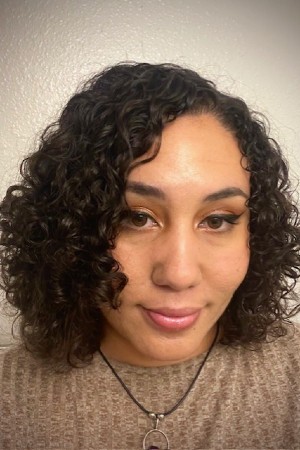 Alishia Dauterive
Alishia Dauterive
Alishia Dauterive is the supervisor for peer specialists at SacEDAPT and EDAPT and supports the clinics in the development of peer specialist job positions, the implementation of genuine peer services, and the transformation of power imbalances in clinic culture. She uses her lived experience of psychosis and altered states to also provide peer perspective, consultation, and guidance to other support staff, clinicians, and medical staff, while additionally providing direct peer support service to SacEDAPT/EDAPT program participants. Furthermore, Alishia spearheads peer support initiatives on the Training and Technical Assistance team for the Early Psychosis Intervention Network of California (EPI-CAL) project where she is an integral member of the Lived Experience Integration team. Alishia has 8+ years of working, training, and advocating in California’s peer support community, and has experience in peer respites, employment services, community health work, and government mental health policy advocacy. As of December 2024, she will have graduated with a B.S in Psychology. She intends to pursue an MPH with a focus in health equity and social justice.
Megan Enos, A.B., B.S., Junior Specialist
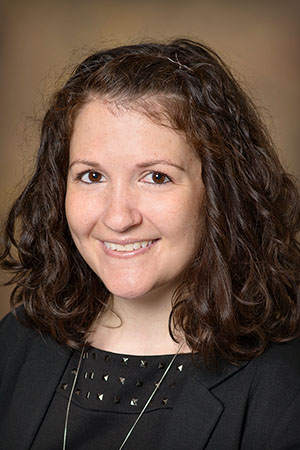 Sabrina Ereshefsky, Ph.D.
Sabrina Ereshefsky, Ph.D.
Sabrina Ereshefsky is a licensed clinical psychologist and the assessment training director of the UC Davis Early Psychosis Programs. She received her doctorate from University of Maryland, Baltimore County in human services psychology, with a concentration in child clinical psychology, in addition to researching functioning and developmental factors associated with the clinical high-risk for psychosis state. Ereshefsky completed her pre-doctoral clinical internship at University of Arizona's Early Psychosis Intervention Center (EPICenter), and she has been with UC Davis Early Psychosis Programs since 2019 when she started her post-doctoral training. Ereshefsky provides training, supervision, and assessment services as well as coordinates quality management between SacEDAPT and Sacramento County. Along with Daniel Shapiro, she co-leads the SAMHSA and Sacramento County funded Sacramento Clinical high-risk Intervention for Psychosis Stepped-Care (SCIP Step) project, overseeing universal screening and assessment across six Sacramento community mental health clinics. Ereshefsky also has research roles supporting EPI-CAL: a statewide learning healthcare network with outcomes implementation and training and technical assistance for early psychosis programs across California.
Jacqueline Espino, B.S., Case Manager
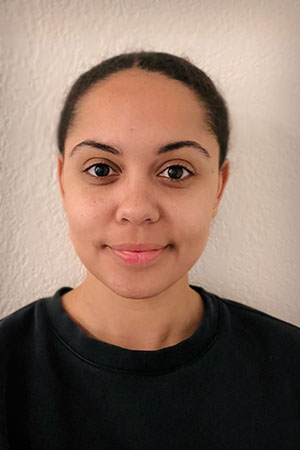 Katelyn Jane Fernandes, B.A.
Katelyn Jane Fernandes, B.A.
Katelyn Fernandes has a bachelor's in quantitative psychology from UC Davis and has a strong interest in child clinical psychology. She is a junior specialist working on the UC Davis Health Trauma Adolescent Mental Illness (TAMI) project. She helps screen youth in the Sacramento area and those located at the Sacramento Youth detention facility to determine eligibility for the trauma adolescent and mental illness program. She oversees managing and tracking client data and scheduling. She hopes to obtain her Ph.D. in clinical psychology.
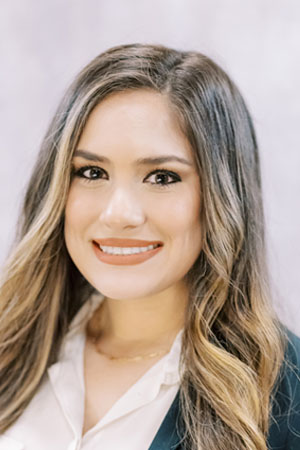 Victoria Galvez, Psy.D.
Victoria Galvez, Psy.D.
Victoria Galvez is a clinical provider with the Sac EDAPT clinic. Galvez wears many different hats within the clinic, some of which include assistant training director, practicum director, providing individual therapy, assessment, group therapy, as well as supervising clinical trainees in therapy and assessment. Galvez's background is in providing mental health services to children, families and young adults with trauma, severe mental illness, and neurodevelopmental disorders. One of Galvez's current research endeavors is serving as the primary investigator (PI) on the Trauma and Adolescent Mental Illness (TAMI) project, which aims to increase capacity of child-serving systems (child welfare, juvenile justice, community mental health) to identify and appropriately link youth experiencing comorbid trauma and psychosis symptoms by implementing a universal screening and referral protocol in Sacramento County juvenile justice and child welfare settings.
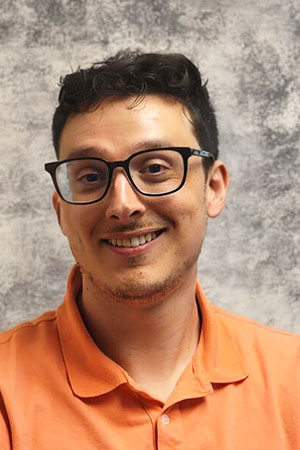 Matt Gerolamo, LCSW
Matt Gerolamo, LCSW
Matt Gerolamo is the EDAPT clinical case manager within the UC Davis Behavioral Health Clinic. He earned his MA in social work from San Jose State University, with an emphasis in health and mental health services. As the EDAPT clinical case manager, he meets with individuals and their families to support with care coordination, and to increase access to community resources, such as educational and employment supports, community and cultural organizations, and other treatment related resources. His treatment interests include understanding the neurobiology of trauma, and the use of mindfulness techniques to improve emotional regulation and distress tolerance. Gerolamo also enjoys baking, yoga, and spending time with his pets.
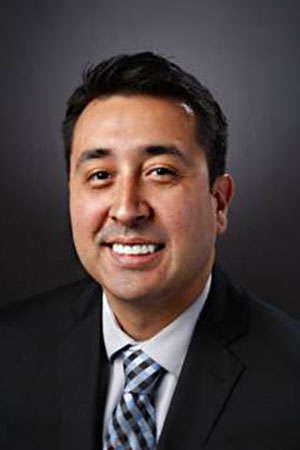 Alvaro Gonzalez, M.A.
Alvaro Gonzalez, M.A.
Alvaro Gonzalez is a bilingual associative marriage and family therapist. Gonzalez received his master's degree in counseling psychology from California State University Sacramento, with an emphasis in research. Prior to joining Sac EDAPT, has served under several titles and programs while at UC Davis. As a researcher, Gonzalez has conducted research in the areas of asynchronous telepsychiatry and screening and treatment for substance use disorders in primary care. He has also served as a mental health therapist and substance use navigator within UC Davis's Primary Care Network Collaborative Care Program.
Gonzalez has experience conducting short- and long-term behavioral health care in both English and Spanish for youth and adults with conditions including depression, anxiety, grief, bereavement, substance use, and difficulties adjusting to life changes. In addition, he has worked with members of the LGBTQ+ community providing supportive therapy and mental health assessments for gender-affirming surgeries. Prior to coming to UC Davis, Gonzalez worked for several non-profit organizations that provided services to youth experiencing homelessness and foster youth. He has experience in solution focused therapy, problem focused therapy, cognitive behavioral therapy, and the therapeutic effects of exercise on one's mental health. Gonzalez contributed to several presentations, journal publications, and a book publication on a variety of topics including asynchronous telepsychiatry, telepsychiatry and health technologies, and integrating screening and treatment of substance use disorders in primacy care.
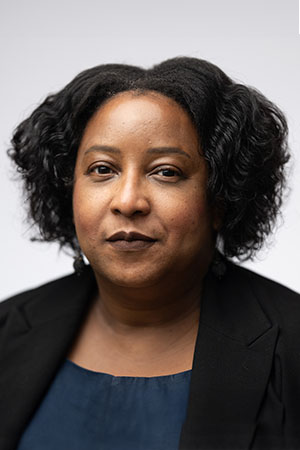 Regina Graham, M.D.
Regina Graham, M.D.
Regina Graham is medical director of the UC Davis Early Psychosis Programs and clinical professor at UC Davis Health Medical Center. She is board-certified in both child and adolescent psychiatry and adult/ general psychiatry. Graham completed her medical school, residency, and fellowship trainings at UCLA, UCSF, and NYU, respectively. She has experience providing mental health care to young people in a wide variety of settings including inpatient hospital, residential treatment, emergency/ crisis center, consultation-liaison, and outpatient (primary care, general psychiatry, psychosis specialty, and school-based) clinic services. Graham believes it is paramount to consider biological, social, and cultural factors when developing mental health treatment plans while exploring optimal ways to interface with our increasingly complex systems of care.
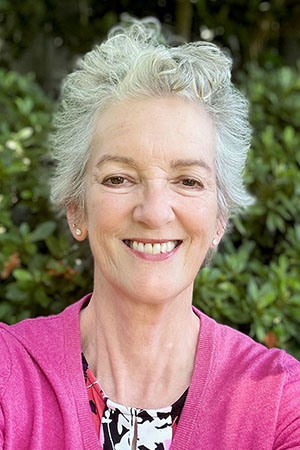 Bonnie Hotz, MBA
Bonnie Hotz, MBA
Bonnie Hotz oversees the delivery of family support services and acts as a mentor to the clinic's family partner staff. Hotz previously served as a SacEDAPT family partner after her family received services through the EDAPT clinic. This dual perspective of having lived experience as well as being a coordinated specialty care provider not only informs Hotz's work in her current role at the clinic but also led to a commitment to mental health advocacy in support of families and their loved ones.
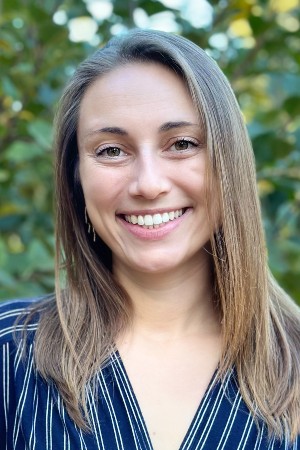 Mallory Kidwell, Ph.D.
Mallory Kidwell, Ph.D.
Mallory Kidwell is a clinical psychologist who provides services through both the UC Davis Trauma and Adolescent Mental Illness (TAMI) Services Project and the UC Davis SacEDAPT clinic. Kidwell received her doctorate in clinical psychology from the University of Utah after completing her predoctoral internship at the UC Davis CAARE Diagnostic and Treatment Center. She then completed her postdoctoral fellowship through the UC Davis TAMI Services Project, where she provided evidence-based assessment and treatment services to system-involved youth and young adults experiencing co-occurring trauma and psychosis symptoms. Now, Kidwell continues to take interest in providing trauma-integrated early psychosis services through the TAMI Project while also offering additional evidence-based assessments and interventions to individuals with psychosis spectrum disorders at the SacEDAPT clinic. Kidwell is also dedicated to offering group treatment services as part of the coordinated specialty care model; Kidwell is foundational trained in dialectical behavior therapy (DBT) and co-leads a DBT skills group for individuals navigating severe mental illness as well as a group to foster support and connection among the LGBTQIA+ community within the SacEDAPT/EDAPT clinics.
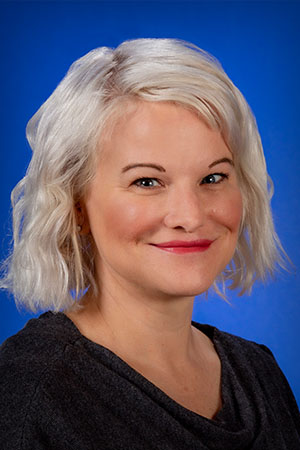 Kathleen Marshall, M.D.
Kathleen Marshall, M.D.
Kathleen Marshall is an associate physician at UC Davis Health and the resident site director of the UC Davis Early Psychosis Programs. She is the medical director of the county operated-Adult Psychiatric Support Services Clinic and works with transitional aged youth at CAPS, the child county clinic. Through these county connections, she has set up various linkage programs that have allowed for better continuity of care across county mental health providers. Marshall completed her medical training at Penn State University and her residency in general psychiatry at UC Davis. She has extensive expertise in the fields of serious mental illness, community mental health and psychosis.
 Vanessa Merino Castaneda, B.A.
Vanessa Merino Castaneda, B.A.
Vanessa Merino Castaneda is a bilingual clinic coordinator of the UC Davis Early Psychosis Programs. Castaneda graduated from UC Davis with a B.A. in psychology. She serves the goal of the early psychosis clinical and research programs; to intervene as early as possible to prevent the development of disease-related deficits and treatment-related side effects for youth with serious mental illness. She contributes to this goal by being the first point of contact for the EDAPT/SacEDAPT clinic. Castaneda coordinates the intakes by conducting phone screens with referral sources and potential consumers, coordinating intake and follow-up evaluations of clinical symptoms and functioning, ensuring compliance with clinical charting requirements, and supporting outcomes data collection and management. She works closely with English and non-English-speaking clients and family members/support persons (Spanish preferred). Castaneda aspires to continue her career as a mental health nurse for the UC Davis Medical Center emergency department. She devotes to focusing on ongoing care coordination as part of the culturally responsive model of care and serving culturally diverse families.
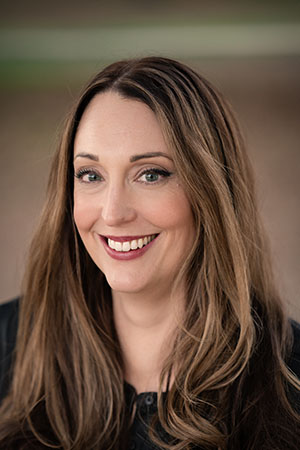 Kristen N. Meyers, Psy.D.
Kristen N. Meyers, Psy.D.
Kristen Meyers is a clinical psychologist and the director of operations for UC Davis Early Psychosis Programs (SacEDAPT and EDAPT) where she supervises clinic activities and staff. Meyers completed her doctorate at Fuller Theological Seminary, internship at Metropolitan State Hospital, and fellowship at Department of State Hospitals-Vacaville Psychiatric Program focusing on psychological and personality assessments. Meyers is the co-creator of a cognitive behavioral therapy for psychosis group treatment manual for adults within state hospital and correctional settings. She comes to UC Davis with leadership experience gained through management of psychiatric programs within the California state system. Meyers has dedicated her career to delivering high quality, evidenced based care to individuals experiencing psychosis. She is passionate about developing healthy work environments where meaningful services are provided efficiently to clientele. She has experience in cognitive behavioral therapy for psychosis, dialectical behavioral therapy skills training, acceptance and commitment therapy, mindfulness, and relapse prevention strategies.
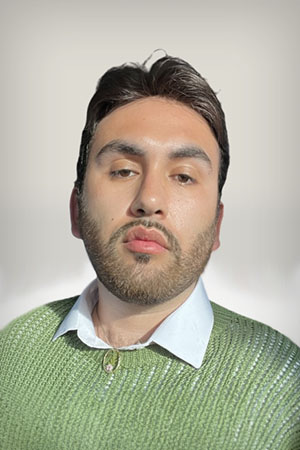 Miguel Molina B.S.
Miguel Molina B.S.
Miguel Molina is a bilingual clinic coordinator for the UC Davis Early Psychosis Programs. He helps coordinate all aspects of clinic activities in this research oriented clinical program, including conducting phone screens with potential clients, coordinating intake and follow-up evaluations of clinical symptoms, and assisting in the ongoing care coordination as part of the culturally responsive model of care. He graduated from UC Davis with a B.S in psychology. He hopes to continue working in the mental health field with a focus on helping reduce the stigma of mental illness within the Latinx community, as well as other racial minority groups. Outside of work, Molina enjoys experiencing different cultures through food and taking long walks through his neighborhood in midtown.
 Karina Muro, Ph.D.
Karina Muro, Ph.D.
Karina Muro is a bilingual and bicultural clinical psychologist who has been part of the UC Davis Early Psychosis Programs (SacEDAPT and EDAPT) clinics since 2016. In 2021, she was appointed faculty in the Department of Psychiatry at UC Davis Medical Center and is the director of clinical training for the UC Davis Early Psychosis Programs. She oversees the APA-accredited Trauma Adolescent Mental Illness (TAMI) training track for pre-doctoral psychology interns and serves as the primary clinical supervisor. Muro has several years of experience providing linguistically and culturally appropriate clinical care and psychosocial assessment for Spanish speaking Latinx clients and families. She is passionate about enhancing clinical services for marginalized and underserved communities as well as teaching in areas of cultural and linguistic considerations. She leads the Spanish Consultation group at the EDAPT clinics to support providers in providing culturally affirming care. She is a co-investigator for the NIMH EPI-NET project, EPI-CAL. She is the Spanish language consultant/educator and the diversity, equity, inclusion, and accessibility co-leader for the Early Psychosis Training and Technical Assistance Center (EP-TTA).
 Amanda Narveson, L.V.N.
Amanda Narveson, L.V.N.
Amanda Narveson holds BA in criminal justice with a concentration in correction from Southwest Minnesota State University and an LVN from college of the Siskiyous. Narveson is originally from Minnesota. Outside of work, she enjoys spending time with her four children and staying active by working out.
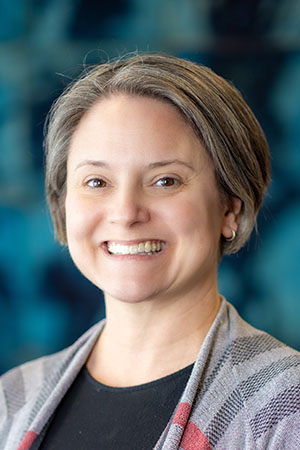 Tara Niendam, Ph.D.
Tara Niendam, Ph.D.
Tara Niendam is a professor and vice chair of research in the Department of Psychiatry and Behavioral Science at the University of California, Davis. She completed her Ph.D. in clinical psychology at the University of California, Los Angeles.
She is the executive director of the UC Davis Early Psychosis Programs (EDAPT and SacEDAPT Clinics) and has developed five early psychosis programs in Northern California based on the coordinated specialty care model of early psychosis.
Her research focuses on improving clinical and functional outcomes for youth with serious mental illness, with a focus on health technology. Her work examines multiple predictors of outcome, including cognition, neuroimaging, trauma and social determinants, as well as prevention of negative outcomes like suicide and homelessness.
She is the principal investigator for the Early Psychosis Intervention Network of California, or EPI-CAL, which is part of the new NIMH-funding EPINET program. EPI-CAL links multiple county- and university-based EP programs to bring client-level data to the clinician's fingertips and enable large scale data-driven approaches to improve outcomes for EP care. She also directs the EPI-CAL affiliated Training and Technical Assistance Center, which seeks to bring evidence based early psychosis care to all Californians.
 Angela Pechacek, M.A.
Angela Pechacek, M.A.
Angela Pechacek is the family peer support specialist with the UC Davis Early Psychosis Programs (SacEDAPT and EDAPT). She completed her master's in special education with Arizona State University with a focus on applied behavior analysis. As the family peer support specialist, Pechacek works with the clinical team and the clients family/support team by offering her lived experience insight that can be instrumental in helping families and their loved ones engage more fully in treatment and lead to a successful recovery. Pechacek's favorite place to be is at the ocean and in her kitchen making food for family and friends to gather around.
Stephanie Danielle Rivera
Stephanie Rivera is a family peer support advocate with UC Davis Health, Psychiatry and Behavioral Sciences.
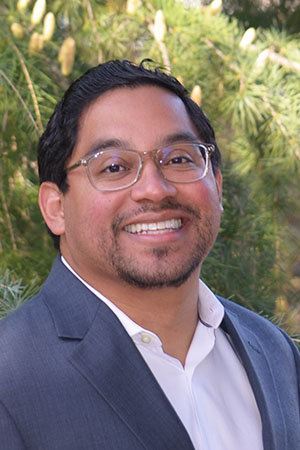 Mauricio T. Rodriguez, M.P.H
Mauricio T. Rodriguez, M.P.H
Mauricio is a bilingual clinical coordinator for the Early Psychosis Programs at UC Davis Medical Center. He is responsible for engaging English and non-English speaking clients and family members/support persons and assist in their ongoing care coordination as part of the culturally responsive model of care. He coordinates all aspects of clinical program, including conducting phone screens with potential consumers, coordinating intakes and follow up evaluations of clinical symptoms and functioning, ensuring compliance with clinical charting requirements within the computerized Avatar System (Yolo) and SmartCare (Sacramento), and support outcomes data and management.
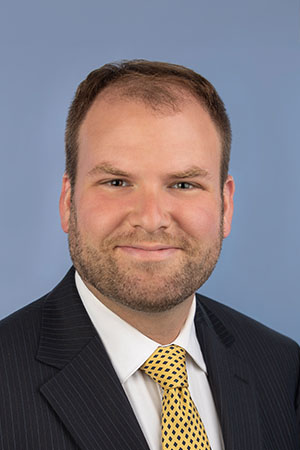 Daniel I. Shapiro, Ph.D.
Daniel I. Shapiro, Ph.D.
Dan Shapiro is a clinical psychologist and part of the leadership team for UC Davis Early Psychosis Programs (SacEDAPT and EDAPT), where he previously served as director of operations and continues to supervise clinical and administrative activities. He currently leads the Sacramento Clinical high-risk Intervention for Psychosis Stepped-Care (SCIP Step) program, an effort to implement screening and stepped-care for those at-risk for psychosis throughout Sacramento County and serves as faculty in the California Early Psychosis Training and Technical Assistance Center. He completed his doctoral training at Emory University and a specialized fellowship in the practice and dissemination of cognitive behavioral therapy at the University of Pennsylvania. Shapiro is particularly interested in research on what treatments work best for whom and in understanding how the things that make us each different affect the help we want, seek, avoid, and benefit from. He is also passionate about teaching and training in these areas and is an avid runner and music enthusiast.
 Ruth Shim, M.D., M.P.H.
Ruth Shim, M.D., M.P.H.
Ruth Shim (she/her) is a psychiatrist in the EDAPT Clinic and the Luke & Grace Kim Professor in Cultural Psychiatry in the Department of Psychiatry at UC Davis School of Medicine. Shim completed medical school, residency, and community psychiatry fellowship training at Emory University School of Medicine, where she also received an M.P.H. in health policy and management at the Rollins School of Public Health at Emory. Shim's research focuses on the social determinants of mental health, social injustice, and mental health inequities.
Sophie Tagliamonte, Psy.D.
Sophie Tagliamonte is a clinical psychologist with UC Davis Health, Psychiatry and Behavioral Sciences.
Camille Tastenhoye, M.D.
Camille Tastenhoye is an assistant clinical professor at UC Davis Health. She is board-certified in child and adolescent psychiatry and general adult psychiatry. Tastenhoye completed her residency and child psychiatry fellowship training at UPMC, after which she completed a forensic psychiatry fellowship at UC Davis. She has experience working with youth and adults experiencing a diverse range of pathologies across a variety of settings, including inpatient, outpatient, intermediary levels of care, and psychiatric emergency services.
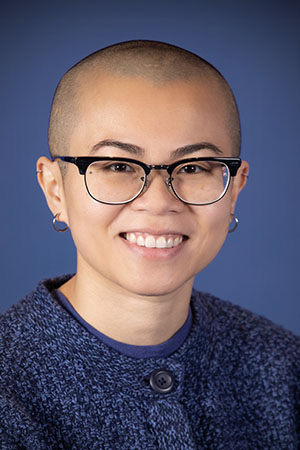 Leni Tran, Ph.D.
Leni Tran, Ph.D.
Leni Tran is a licensed psychologist at UC Davis Early Psychosis Programs. She is a graduate of the California School of Professional Psychology, San Francisco Bay Area Campus. She has training and experience in providing integrative therapy to adolescents, adults, and older adults. She is interested in evidence-based practices for individuals with marginalized identities.
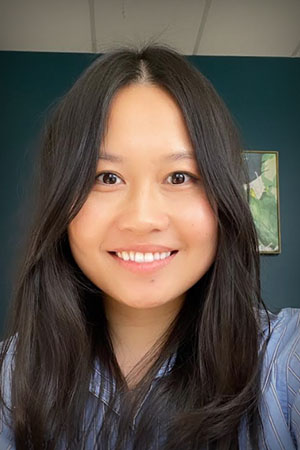 Dana Tzuahzia Lee, Psy.D.
Dana Tzuahzia Lee, Psy.D.
Dana Lee is a postdoctoral fellow at the UC Davis SacEDAPT clinic. She holds a doctoral degree in clinical psychology. At SacEDAPT, Lee utilizes evidence-based assessment and therapeutic approaches tailored to meet the unique needs of clients in the program. Lee is passionate about understanding how the interplay of cultural and systemic issues impacts help-seeking attitudes among Asian Americans, Native Hawaiians, and Pacific Islander communities. Her goal is to contribute to making psychological services culturally inclusive and equitable.
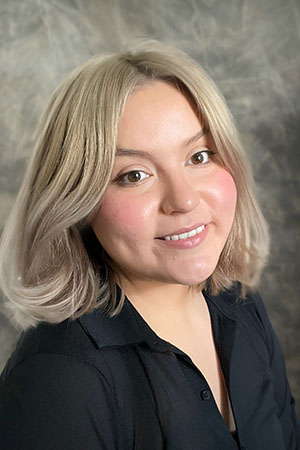 Carolina Valdovinos Ramirez, B.A.
Carolina Valdovinos Ramirez, B.A.
Carolina Ramirez is the lead clinic coordinator at the UC Davis Early Psychosis programs. She started her journey in behavioral health by receiving her B.A. in psychology at UC Davis. She garnered experience in acute psychosis care at an emergency department and now lends support by guiding families interested in the program at the point of referral. Since joining the clinic, Ramirez has contributed to the program by supporting language inclusivity for Spanish-speaking families throughout their care with EDAPT and SacEDAPT. In her role as lead, Ramirez is a direct support for the clinic coordinator team. Clinic coordinators serve as the first point of contact for referrals and new clients, support with medical records, and among other items, facilitate communication between providers, clients, and our staff. Ramirez's area of focus is billing, but she also oversees intake scheduling and coordinating.
 Josephine Vilchez
Josephine Vilchez
Josephine Vilchez is a bilingual case manager for SacEDAPT and Yolo clinics. She works with clients and their families to help navigate bureaucratic systems and facilitate their understanding of these systems to help facilitate everyday functioning goals. She acts as liaison for families in settings of establishment to be able to prioritize the client and family's mental health. She has gathered experience in case management with vulnerable populations, expanding her knowledge to be able to access the most fitting resources including but not limited to food pantries, housing navigation, legal assistance, and mental health services. Prior to working in case management, she received her B.S. in neuroscience with a minor in human development and family studies from the University of Nevada, Reno. She has demonstrated interest in mental health and the services that could be provided for populations that are unable to access it through her previous work at an international non-profit and her current work the UC Davis SacEDAPT clinic. She is passionate about furthering her education within the field of psychology by providing trauma-informed and effective services to her clients and making an effort to understand versatile forms of perspectives.
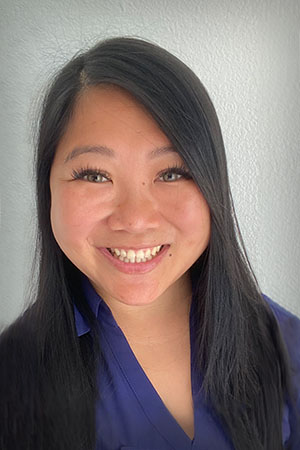 Susie Xiong, Psy.D.
Susie Xiong, Psy.D.
Susie Xiong is a clinical psychologist and is the supervisor of psychotherapy groups with the UC Davis Early Psychosis Program. She received her doctorate in clinical psychology from Alliant International University. She completed her post-doctoral scholar training at the UC Davis SacEDAPT Clinic where she provided assessment and treatment to youth and adults experiencing early symptoms of psychosis. As a psychologist with the clinic, she provides comprehensive psychological assessment, and evidence-based treatment, including CBT, CBTp, FFT, TFCBT, TICBTp, CPT, and group psychotherapy to youth, adult, and family experiencing psychosis. Xiong is a bilingual/bicultural Hmong clinician with an appreciation in providing services to the API community. Her research interest centers on understanding and improving assessment and mental health treatment for underserved individuals experiencing severe mental illness, particularly within the API community.
Shirley Yau, B.S., B.A.
Shirley Yau (they/them/theirs) serves as a policy analyst for UC Davis EDAPT. They received a B.S. in neurobiology, physiology and behavior and a B.A. in psychology from UC Davis. Prior to joining EDAPT, Yau worked as a research assistant in a rodent neurophysiology lab, and as a case manager for Medi-Cal clients. Yau supports EDAPT by assisting with clinical assessments, recruitment, project development and partnership outreach. They hope to eventually pursue higher education and ultimately contribute their experiences and knowledge to the LGBTQIA+ community.
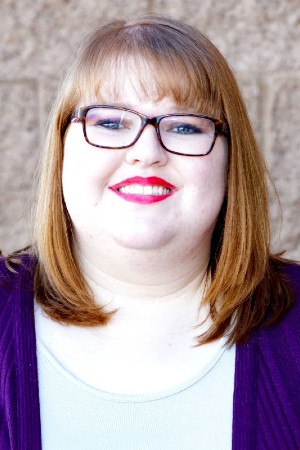 Ashley Haws
Ashley Haws
Stephania Hayes
Stephania Hayes is a postdoc scholar with UC Davis Health, Psychiatry and Behavioral Sciences.
Seohyun Joo
Ashley Peluso, M.A., SUDCC
Ashley Peluso (she/her) is a clinical psychology practicum extern student with the TAMI project. Peluso has several years clinical experience working with high risk/high need adolescents and adults across all levels of care. Peluso has a specialty in substance use treatment and maintains a certification for drug and alcohol counseling. Peluso brings a passion for dual diagnosis and aims to provide well rounded care following the trauma informed cognitive behavioral therapy (TF-CBT) model. Peluso is committed to inclusive healthcare with her current research involving the impact of microaggressions and the nonbinary experience.
 Nuri Rhines, B.A.
Nuri Rhines, B.A.
Nuri Rhines is a clinical psychology doctoral intern on the TAMI Systems Track within SacEDAPT. She has experience conducting court-ordered child maltreatment evaluations, providing individual and group therapy in acute and residential inpatient settings with adolescents and adults, and working as a registered behavioral technician with both children and adults with autism. Additionally, Nuri has served as a graduate teaching assistant within her doctoral program. She is deeply committed to advocacy work, particularly in early intervention mental health care. Nuri is passionate about Black/African psychology and the treatment of complex trauma and severe mental illness within marginalized communities. A fun fact about Nuri is that she loves to cook and hopes to incorporate this passion into her future work in psychology.
 Sabrina Shah, M.A.
Sabrina Shah, M.A.
Sabrina Shah is a clinical psychology doctoral student in her fourth year at California Northstate University. She received her B.S. in applied psychology from Farmingdale State College in New York. She is currently working at SacEDAPT under the SCIP Step track with Sabrina Ereshefsky and Daniel Shapiro. Sabrina's interest in psychology is deeply rooted in her background. She is passionate about addressing the stigma surrounding mental health and the obstacles it presents. Her compassion and empathy drive her commitment to establishing strong therapeutic relationships with her clients. Sabrina is dedicated to helping her clients, offering support, and going out of her way to be aware of the factors that have shaped their current situations. She is strongly committed to meeting her clients' needs and assisting them in achieving their goals. Sabrina aims to create a therapeutic environment where clients feel safe, secure, and hopeful about improving their lives.
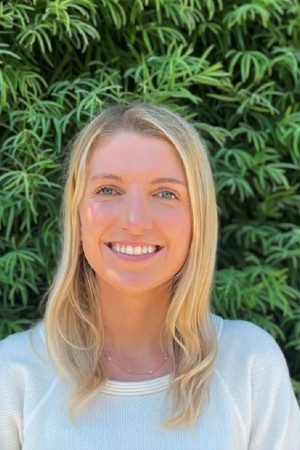 Kimberly Smith, M.S.
Kimberly Smith, M.S.
Kimberly Smith is one of the pre-doctoral interns on the TAMI track at UC Davis. She is currently completing her doctoral training at the PGSP-Stanford PsyD Consortium and plans to graduate in June of 2025. Kimberly has several years of clinical experience working with adolescents and adults experiencing symptoms of psychosis in both inpatient and outpatient settings. She is passionate about providing recovery-oriented and trauma-informed care to youth early in the course of their illness. Her research interests include exploring racial differences in rates of psychotic and trauma disorder diagnoses, as well as examining the way cultural factors impact clients' pathways to specialty care for psychosis.
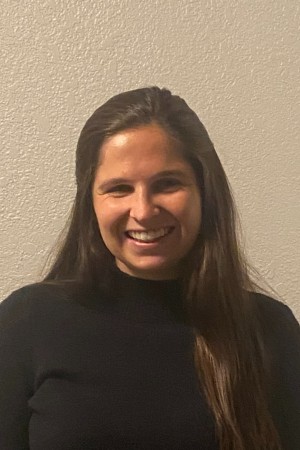 Taylor Whitaker, M.A.
Taylor Whitaker, M.A.
Taylor Whitaker is a practicum extern at UC Davis. She works with the TAMI Systems and SacEDAPT teams. Taylor is currently a fourth-year clinical psychology doctoral student at California Northstate University. She completed her undergraduate degree in psychology at Northeastern University in Boston, Massachusetts. Her passion is providing mental health services and education to systems-involved youth and families. Her job responsibilities with the TAMI Project consist of conducting psychosis and trauma screenings, assessments, and therapy services for CPS-involved and incarcerated youth in Sacramento County. With the SacEDAPT clinic, Taylor provides therapy services to youth experiencing psychosis-like symptoms. In her therapeutic practice, Taylor draws from trauma-informed, strength-based, and person-centered theories. In her free time, Taylor enjoys hiking and exploring new places.
